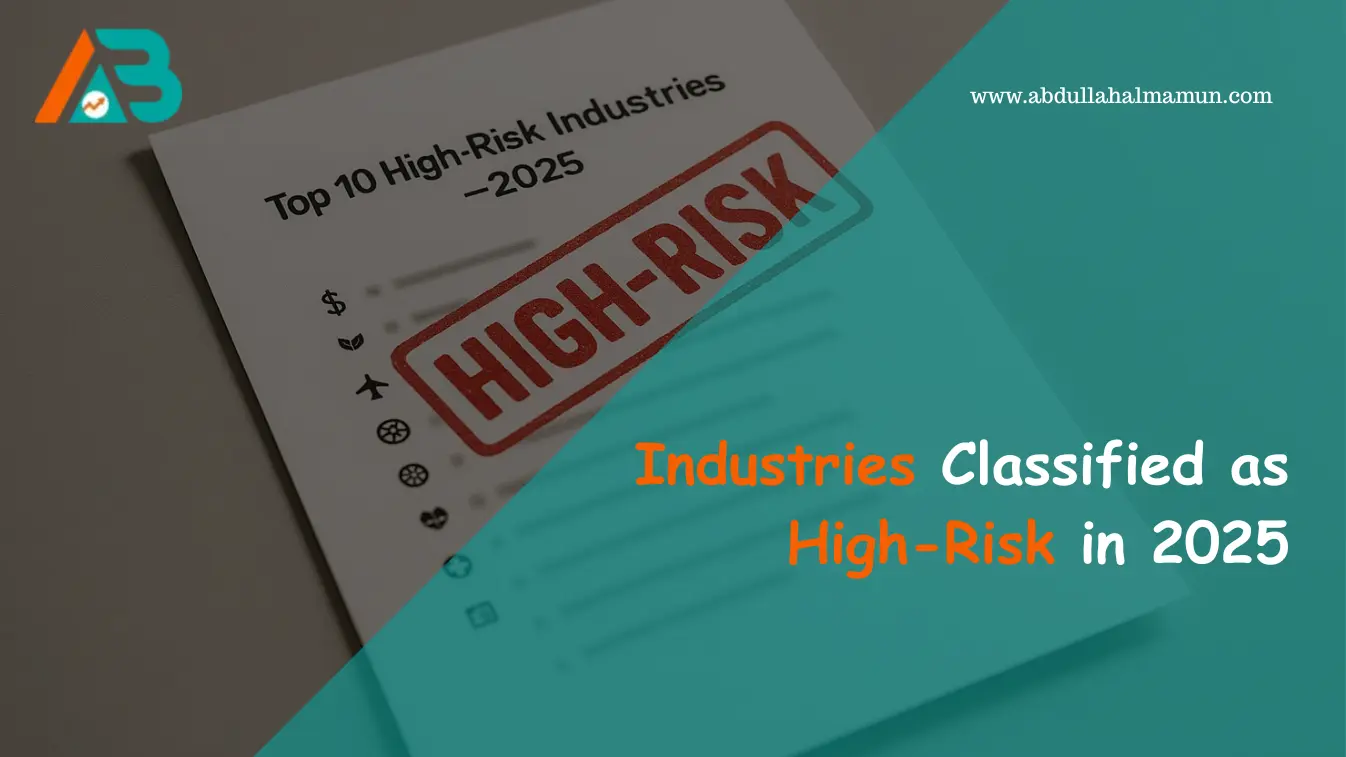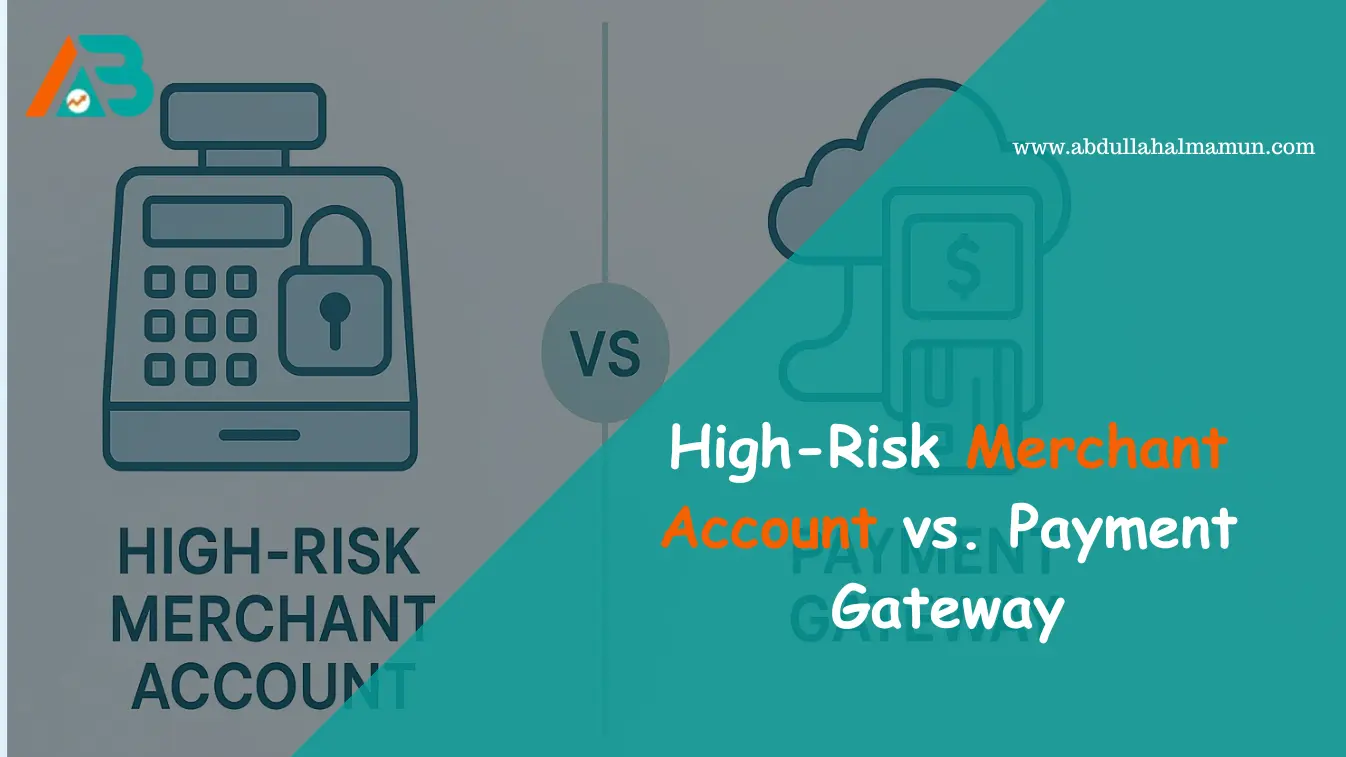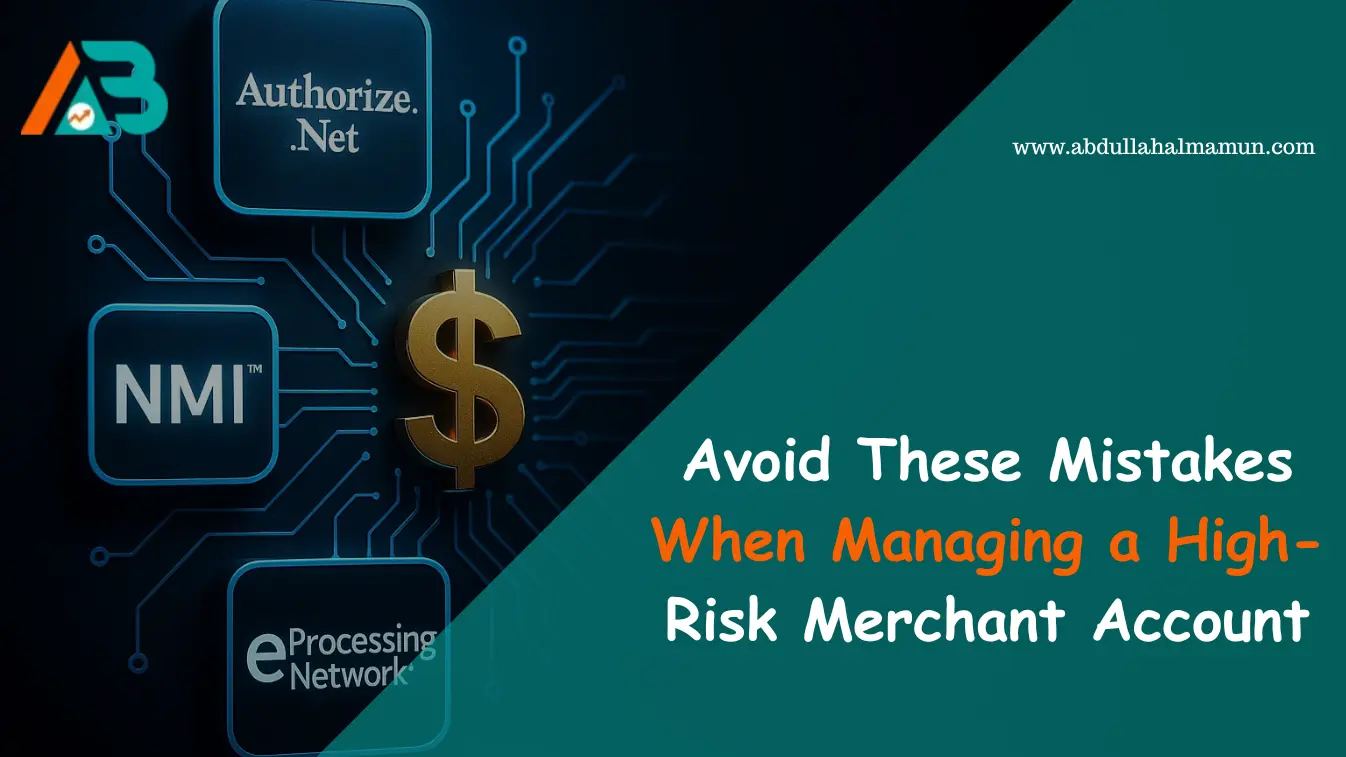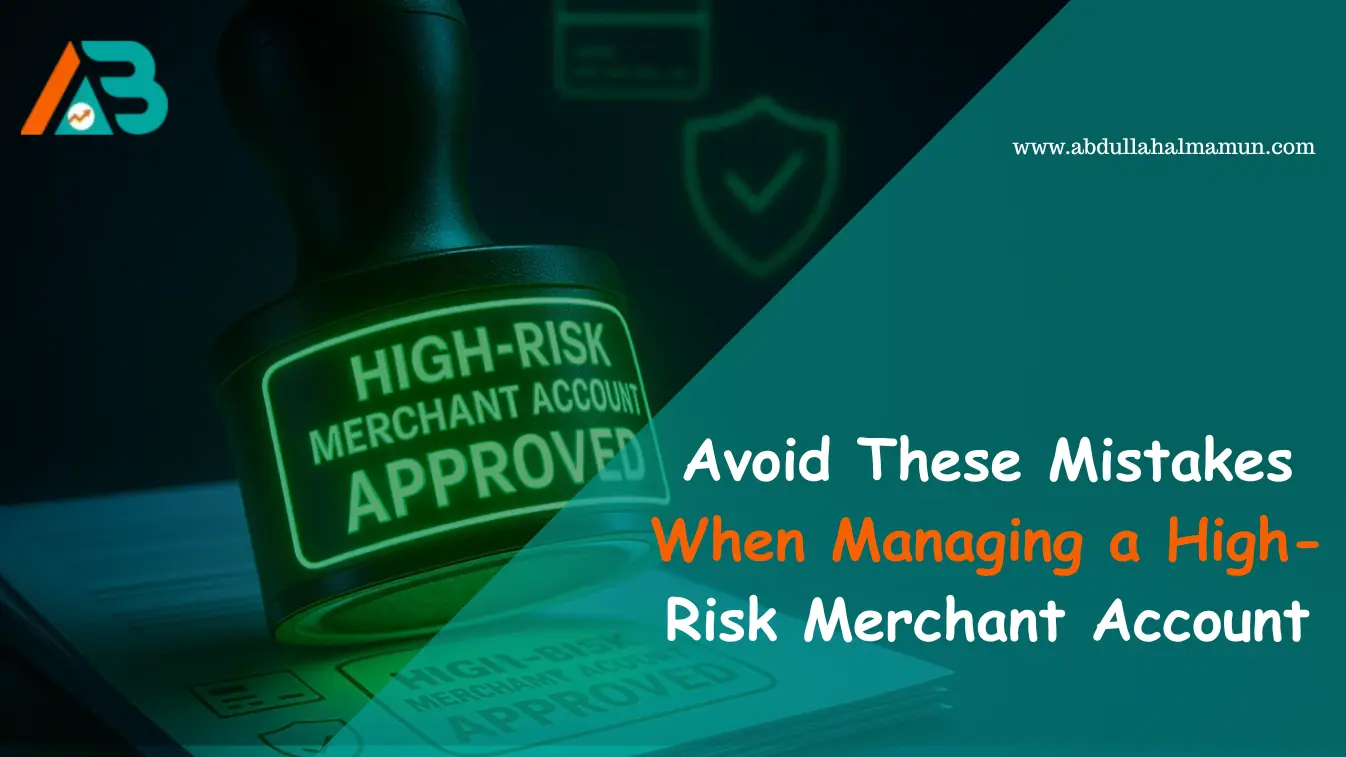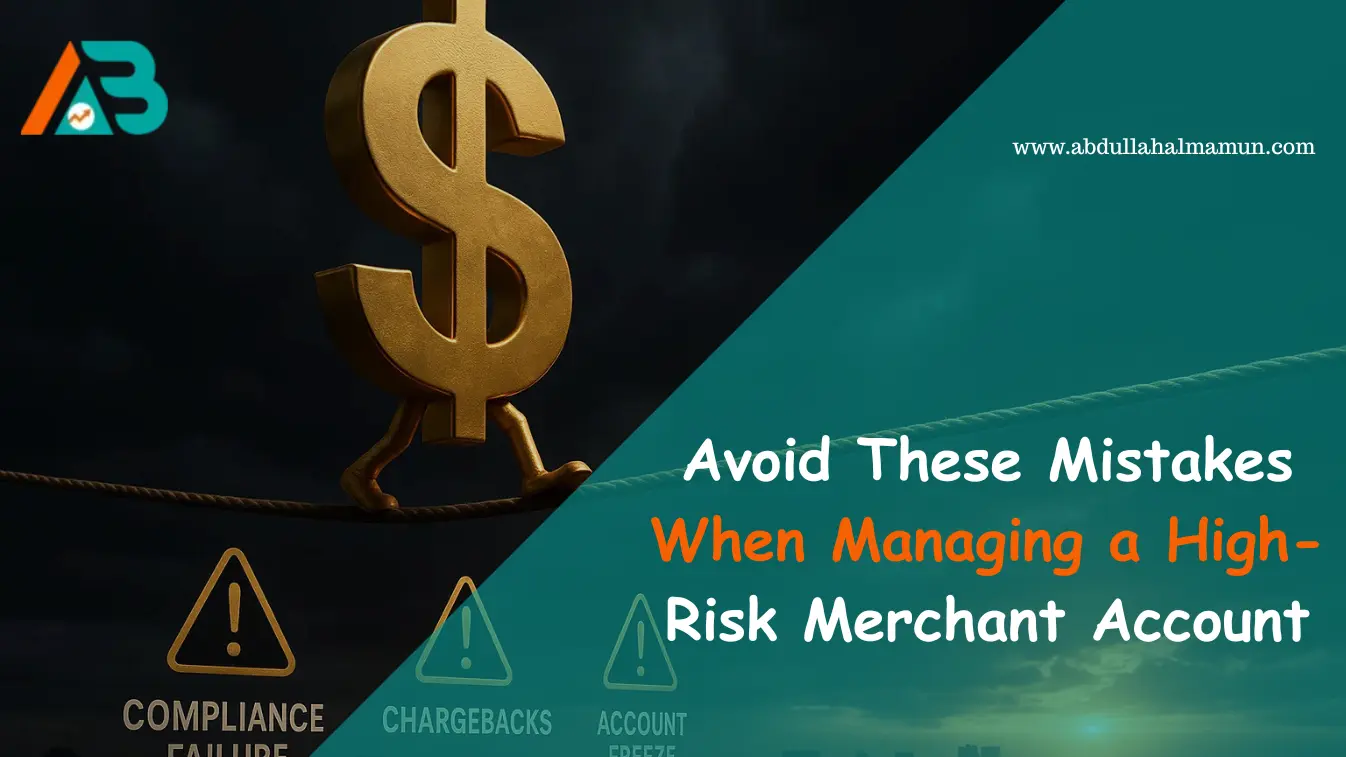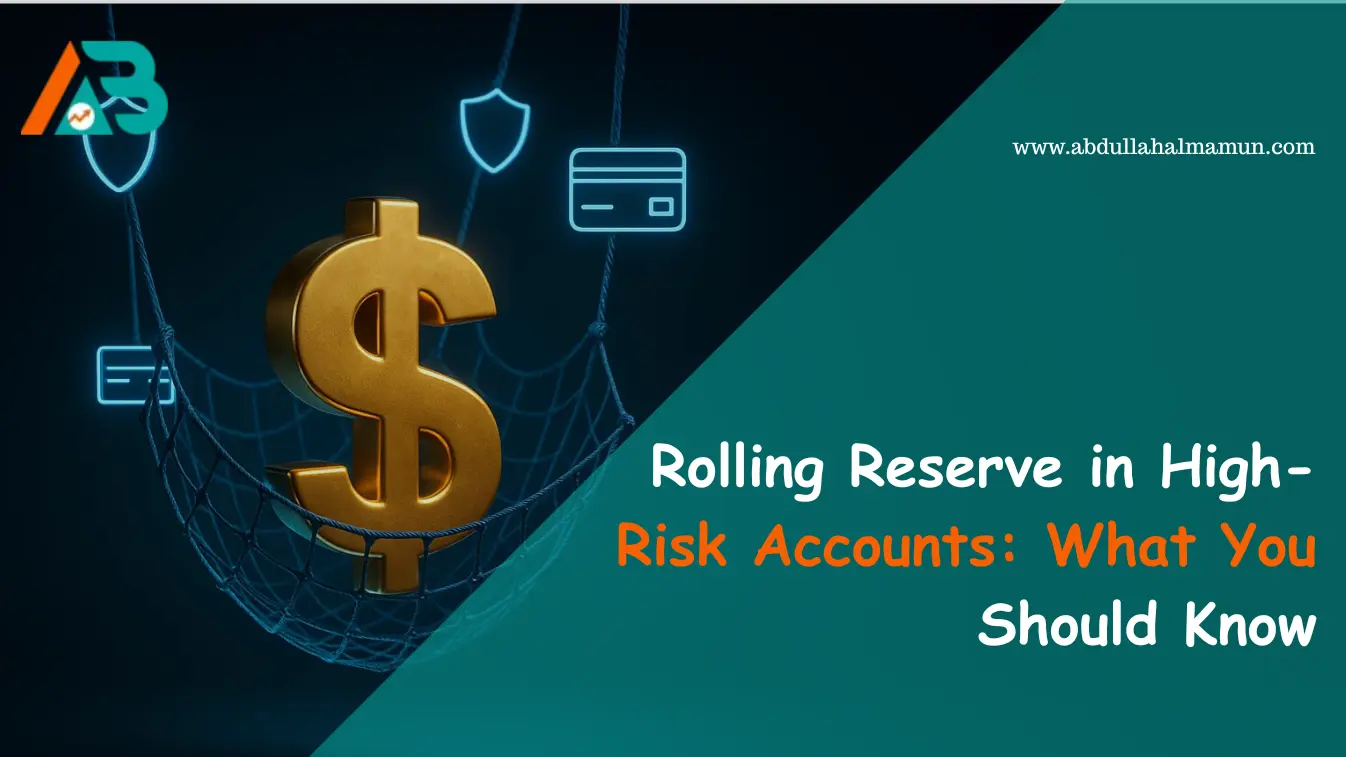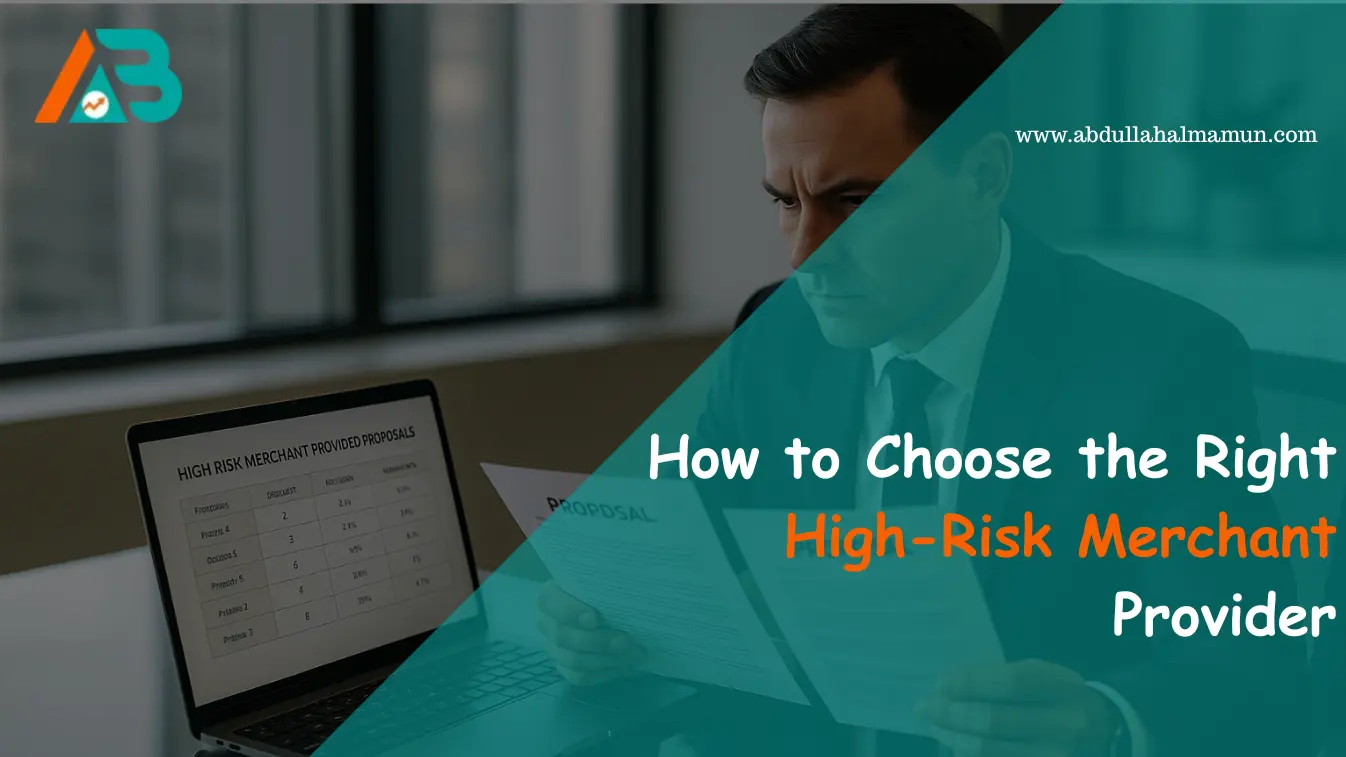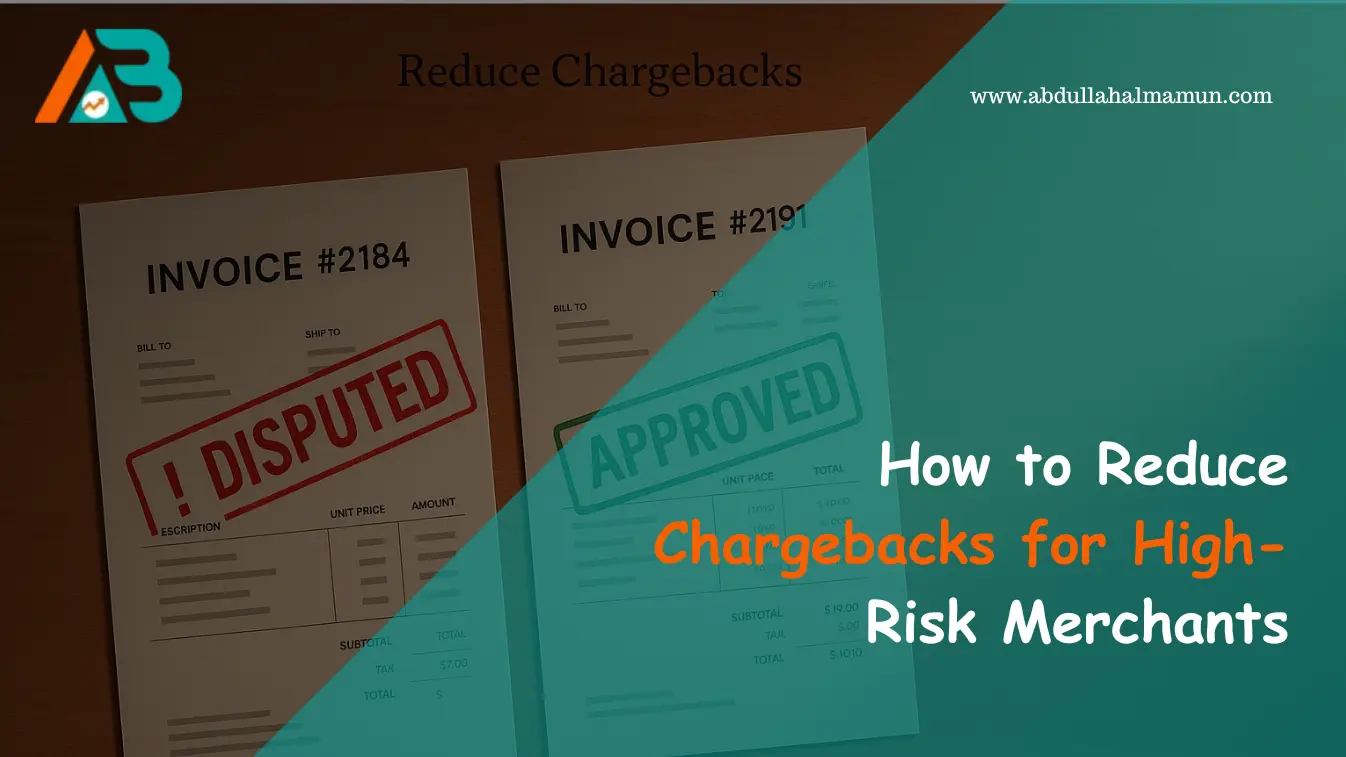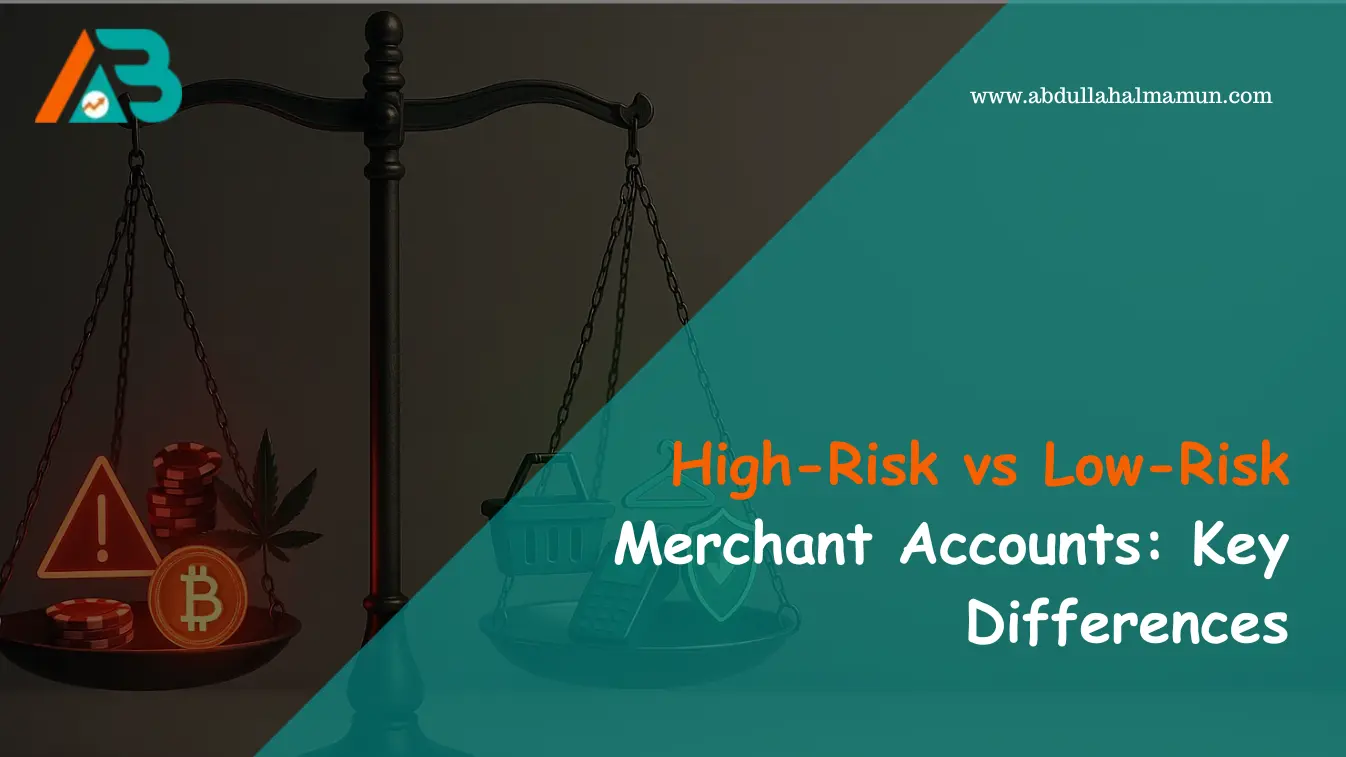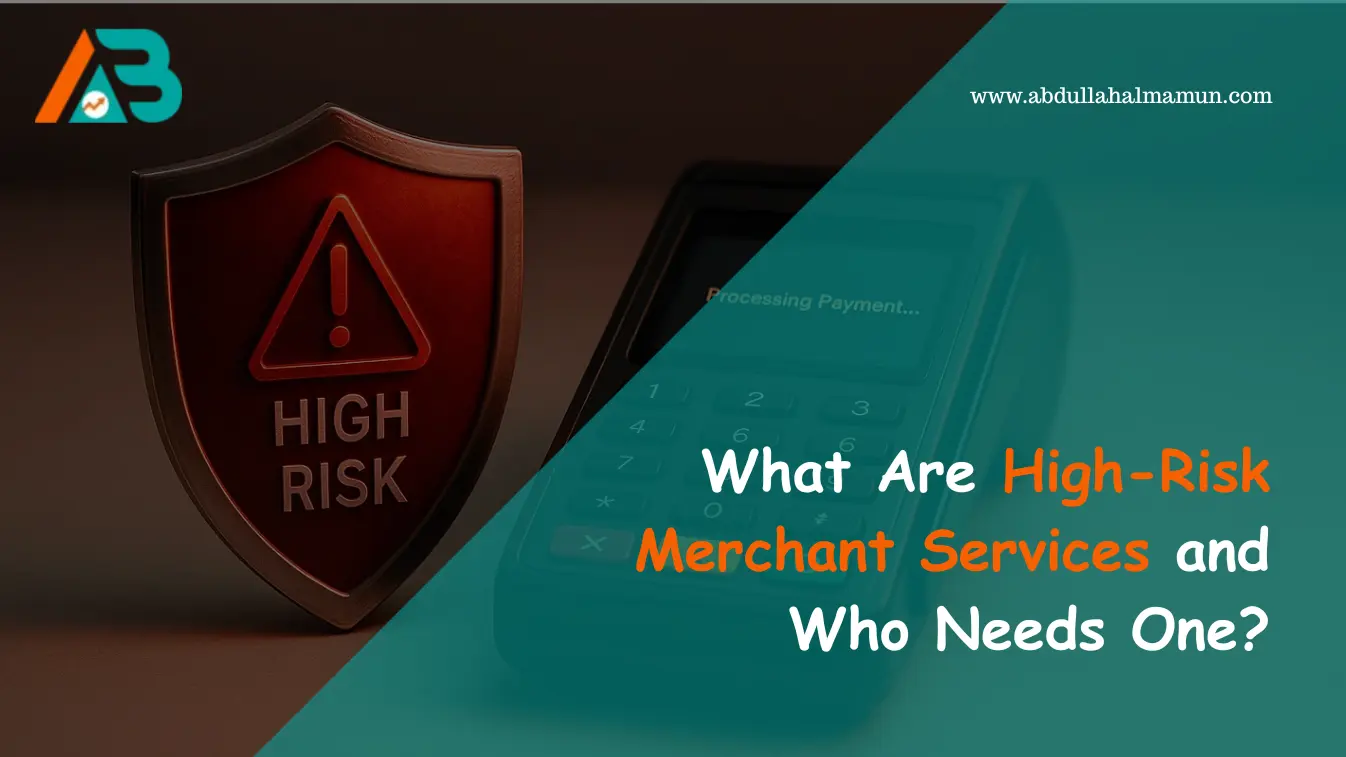“Wait a Moment, Why’s Everyone Calling My Business ‘High-Risk’?”
Ever get the feeling your industry’s in trouble and no one gave you a heads-up?
Maybe you are a legit entrepreneur—working hard, running ads, making sales—but the moment you try to open a payment account or apply for merchant services, you hear it:
“Sorry, your business is classified as high-risk.”
Sound familiar?
Let’s talk about what that really means and which industries are on that so-called naughty list in 2025.
So, What Does “High-Risk” Industry Even Mean?
Before we jump into the list of 10 high-risk industries, let’s clear something up.
A high-risk business doesn’t always mean something shady or sketchy.
It just means your industry tends to come with a few more risks than usual, like:
- Chargebacks or refunds
- Regulatory scrutiny or legal issues
- Payment fraud or security concerns
- Inconsistent or unpredictable transactions
And that’s exactly why a High-Risk Merchant Account might be your best bet, built to safeguard both you and your payment partner.
Top 10 Industries Tagged as High-Risk in 2025
These industries didn’t just show up on the radar by chance. They’re flagged because of consistent trends, tricky compliance issues, and how money typically moves around in them.
- Online Gambling & Sports Betting
It’s fast money, big stakes, and sometimes messy rules. Even when gambling is legal, the fine print around payouts, chargebacks, and age restrictions makes payment processors super cautious. They’ve seen too many disputes blow up overnight. So yeah, this one’s always on the high-risk radar.
- CBD, Hemp & Cannabis Products
Despite growing legality in many U.S. states, cannabis-related businesses still face federal restrictions. That clash creates payment chaos.
- Adult Entertainment & Content
From streaming to subscription-based adult platforms, these businesses face moral scrutiny, chargebacks, and age-verification liabilities.
- Forex Trading & Cryptocurrency
Fast transactions, unregulated platforms, and volatile markets, this industry has it all.
It’s legit… but high-risk? Definitely.
- Travel & Airlines
Since COVID-19, cancellations, refund claims, and global instability have made this once-stable sector a financial tightrope.
- Subscription Boxes & Continuity Services
Whether it’s supplements or beauty boxes, recurring billing models often lead to chargebacks due to forgotten or unwanted subscriptions.
- Debt Collection & Credit Repair
Dealing with people’s money and credit scores is always tricky. Plus, there’s a fine legal line you have to walk.
- Telemedicine & Online Pharmacies
The convenience is great, but regulators demand airtight security and compliance. If you’re missing a license, you’re out.
- E-Cigarettes & Vape Shops
Even with proper licenses, these businesses often struggle with payment providers due to age restrictions and state-specific laws.
- Dropshipping & Affiliate Marketing
Delivery delays, supplier issues, and inconsistent refund policies, dropshipping still carries major risk flags. Especially when it’s tied to non-U.S. merchants or vague product sourcing.
Pro Tip: Forming a U.S. company with full compliance and appointing a local authorized signer can help reduce red flags. Payment providers often review business legitimacy, and having a proper U.S. business setup makes your model appear more trustworthy.
How This Connects to High-Risk Merchant Services
If you’ve read our post on What Are High-Risk Merchant Services, you know that mainstream processors like Stripe or PayPal might turn away these businesses, or freeze their funds without notice.
That’s why industries on this list often seek customized payment solutions, chargeback mitigation support, and processors that actually understand how they operate.
Why This Matters to You
Getting labeled as “high-risk” isn’t the end. It’s just a label.
But understanding your industry’s risk classification helps you prepare smarter:
- You can avoid sudden account shutdowns
- You can secure proper High-Risk Merchant Account setups
- And most importantly, you get peace of mind
Consult with an expert to stay compliant.
Closing Thoughts: You’re Not Alone, You’re Just Flagged
Let’s be real, building a business is already hard.
Being flagged high-risk can make it harder. But that doesn’t mean you’re doomed. It just means you’ve got to be more intentional.
“Every red flag is just a challenge in disguise. Know the game, then play it smarter.”
And if you’re in the middle of figuring all this out, wondering why payment processors act the way they do, or why your industry gets treated differently, know this:
Others have been in your shoes, figured things out, and built strong systems because they took the time to understand how the pieces really fit.
So, whether you’re trying to secure a solid payment setup or just want to avoid unnecessary setbacks, this list is your starting point.
Let’s keep you informed. Not flagged.
FAQ
- Why do they call my industry “high-risk” when I’m just running a legit business?
Honestly, it’s so frustrating, right?
But to be honest, “high-risk” label doesn’t mean your business is shady. At least not always. It just means the payment industry sees a higher chance of chargebacks, refunds, or regulatory issues in your field.
Think of it like insurance, some things cost more to cover, even if you’re doing everything right.
- I run a dropshipping business. Am I high-risk just because of my business model?
In most cases… yes.
Dropshipping comes with delays, foreign suppliers, and sketchy refund terms; your customers notice, and so do the chargebacks.
It’s not personal if I’m being honest, it’s just how the banks see your setup.
- Can I still get a payment processor if my business is high-risk?
Yes, you absolutely can, just not usually through platforms like Stripe or PayPal.
For your kind of business, you’ll need a High-Risk Merchant Account. These accounts are made to handle industries that need a little extra caution.
- Are high-risk merchant services more expensive?
They can be, yes.
Because the risk of chargebacks or fraud is higher, processors usually charge slightly more in fees or require rolling reserves.
But in exchange, you get stability—and a partner who won’t freeze your funds overnight.
- What’s the worst that can happen if I ignore the “high-risk” label?
Oof… that’s where it gets real.
You could have your payment account frozen, your payouts delayed, or your processor terminate you without warning.
And if you’re holding large balances, that’s not just annoying—it can crush your cash flow.
- I’m in a “borderline” industry like health supplements or coaching, am I at risk, too?
Yup, borderline businesses are often quietly flagged.
If you’re offering products or advice tied to health, finance, or emotional outcomes, payment providers tend to take a closer look. It’s best to get ahead of it with a proper merchant solution that understands your industry.
- Who decides if a business is high-risk anyway?
Mostly payment processors and banks.
They base their decisions on industry data, chargeback history, legal red tape, and how “predictable” your transactions are.
Even if your business is ethical and clean, the industry category itself might trigger the label.
- Will switching to a high-risk-friendly provider affect my brand’s reputation?
Not at all.
These providers work behind the scenes. Your customers won’t know the difference. What they will notice is that your payments go through smoothly, refunds are handled well, and your site runs without financial hiccups.
- I’m just getting started. Should I worry about this now?
Better now than when you’re deep in sales and suddenly can’t withdraw your funds.
If your industry is on the list—or even hovering near it—just be prepared.
A little awareness now saves a lot of drama later.
- Is there a way to “get off” the high-risk list later on?
Sort of.
If you build a strong processing history, keep chargebacks low, and maintain legal compliance, some providers might re-evaluate you over time.
But for many industries, it’s not about you. It’s about the category. So while you may not escape the label, you can thrive within it. And that’s what really matters.

